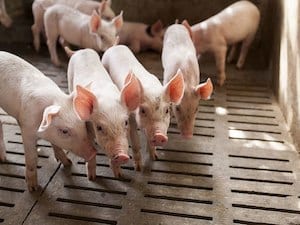
THURSDAY, June 28, 2018 (HealthDay News) — Nearly 80 percent of meat in U.S. supermarkets contains antibiotic-resistant bacteria, according to the Environmental Working Group, a non-profit environmental research organization.
The bacteria — often called “superbugs” — were resistant to at least one of 14 antibiotics tested for in 2015 by the National Antimicrobial Resistance Monitoring System, a federal-public health partnership.
Antibiotic-resistant bacteria were found on 79 percent of ground turkey samples tested; 71 percent of pork chops; 62 percent of ground beef; and 36 percent of chicken breasts, wings and thighs, the findings showed.
Antibiotic resistance is a serious threat to health and food security, according to the World Health Organization.
“Consumers need to know about potential contamination of the meat they eat, so they can be vigilant about food safety, especially when cooking for children, pregnant women, older adults or the immune-compromised,” the report’s author, nutritionist Dawn Undurraga, said in a news release from the organization.
Dr. Gail Hansen, a public health consultant and veterinarian, elaborated on the danger.
“Bacteria transfer their antibiotic-resistance genes to other bacteria they come in contact with in the environment and in the gastrointestinal tract of people and animals, making it very difficult to effectively treat infections,” Hansen said in the news release.
Even though antibiotic resistance is a serious threat to human health, the U.S. government allows meat producers to give antibiotics to healthy animals, the authors of the new report noted.
“When one person or group misuses antibiotics, they cause resistance to the antibiotics to spread, hurting everyone in society,” said Dr. Brad Spellberg, chief medical officer at the Los Angeles County and University of Southern California Medical Center.
“It’s not acceptable for one group of people to profit by hurting everyone else in society,” he added.
Undurraga suggested that consumers can help reduce the amount of antibiotics used in farm animals and slow the spread of drug resistance by choosing organic meat and meat raised without antibiotics.
Along with release of its report, the Environmental Working Group wrote to the U.S. Food and Drug Administration asking the agency to take action.
“The public shouldn’t have to wait until 100 percent of the bacteria found on meat are untreatable with antibiotics before the FDA takes strong action,” Undurraga said. “Now is the time for the FDA to get medically important antibiotics off factory farms.”
More information
The Environmental Working Group has more about understanding meat and dairy product labels.
